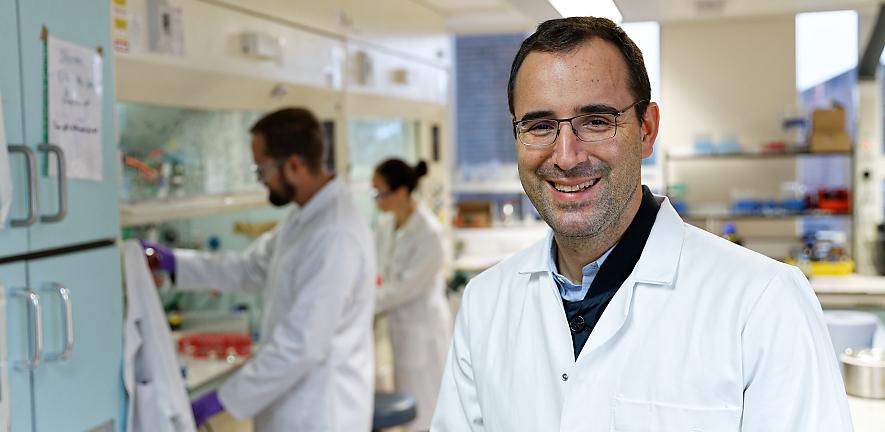
The prize is given for his design, development and application of targeted therapeutics, including small molecule-based RNA degradation and conditional activation of chemotherapeutics.
Head of Department Professor James Keeler said: “This prize is a great recognition of the ambition and significance of Gonçalo’s work. Chemists have always played an important role in the development of new drugs, but Gonçalo’s work shows just how much more powerful a profound understanding of both the chemistry and the biology is in developing new therapies.”
Bernardes’ work is considered to be at the forefront of the interface of chemistry and biology and has led to many breakthroughs in protein chemistry and new chemical methodologies to address difficult questions in life sciences.
Bernardes said: “This prize recognises an effort in what I hope will generate new scientific knowledge and technological developments to impact on human health. This would not be possible without the talent and hard work of all of the undergraduate students, graduate students, postdoctoral researchers, and collaborators that I
have worked with, and with the support from my family. I am very grateful to all.”
One example of this innovative work is his research group’s development of a new tool for degrading RNA sequences in living cells using click-chemistry reactions.
Delivering cytotoxic drugs (drugs that kill cells) to specific cancer tissue sites without damaging healthy cells is a key research area for Bernardes and his research group. One technique involves ‘masking’ the activity of a drug, which is only restored when it reaches a tumour tissue. This means it won’t damage healthy cells along the way, enabling the dose to be increased without side-effects, and maximising efficacy.
Bernardes was recognised as a finalist in the Blavatnik awards in 2021 for the development of DNA degraders, and has recently been appointed as a Visiting Professor at Xi’an Hospital of Traditional Chinese Medicine in China, where he will continue his research into targeted cancer therapeutics in collaboration with medics and clinicians trained in both Chinese and Western medicine.

